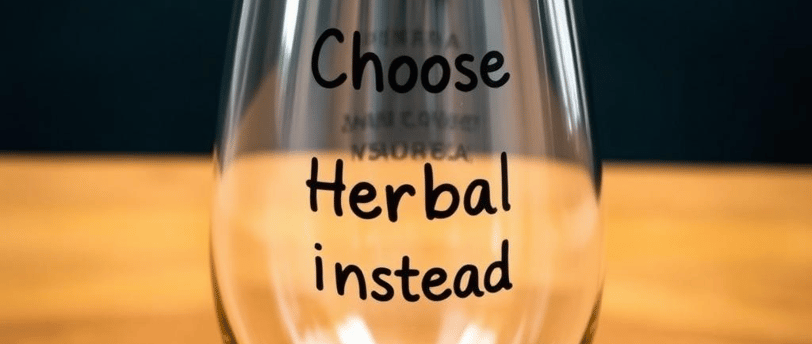Reduce Alcohol for Hormonal Balance: Understanding the Impact on Estrogen and Progesterone Levels
🧘WELLNESS TIPS🌸 HORMONAL BALANCE & WOMEN’S WELLNESS


Excessive alcohol consumption is a widespread issue that affects not just physical health but also hormonal balance. Various studies reveal a significant connection between alcohol intake and the regulation of critical hormones such as estrogen and progesterone. Understanding this relationship is essential for promoting a healthier lifestyle and achieving hormonal balance.
The Role of Estrogen and Progesterone
Before diving into the effects of alcohol on these hormones, it’s important to comprehend their roles in the human body. Estrogen and progesterone are pivotal sex hormones that regulate various bodily functions, particularly in women.
Estrogen
Estrogen is responsible for:
Reproductive Functions: It plays a crucial role in the menstrual cycle and reproductive health.
Bone Health: Estrogen helps in maintaining bone density and strength.
Mood Regulation: Fluctuations in estrogen levels can have direct implications for emotional well-being.
Progesterone
Progesterone is equally important and contributes to:
Menstrual Cycle Regulation: It prepares the body for pregnancy and supports gestation.
Mood and Sleep: Low levels can lead to mood disturbances, including anxiety and sleep problems.
Metabolism: It influences how the body processes and utilizes nutrients.
Hormonal imbalances with either of these hormones can lead to a myriad of health issues, including heavy menstrual cycles, mood disorders, infertility, and even osteoporosis.
The Impact of Alcohol on Hormonal Levels
Disruption of Endocrine Function
Scientific evidence indicates that excessive alcohol consumption can disrupt endocrine function, leading to imbalances in estrogen and progesterone levels. Alcohol is metabolized primarily by the liver, and heavy drinking can cause oxidative stress on liver cells, impairing their ability to regulate hormone levels efficiently.
A study published in the Journal of Clinical Endocrinology & Metabolism found that alcohol consumption can raise estrogen levels in both men and women. Elevated estrogen levels, particularly in women, can lead to increased risks of hormone-related health issues like premenstrual syndrome (PMS), endometriosis, and even certain types of cancer, such as breast cancer.
Increased Aromatase Activity
Another significant factor is the enzyme known as aromatase. Aromatase is responsible for converting androgens (such as testosterone) into estrogen. Alcohol intake has been shown to promote aromatase activity, leading to increased estrogen levels, which can further disturb hormonal balance.
Progesterone Levels
Excessive alcohol consumption can lead to lower progesterone levels. Alcohol interferes with the ovarian function, potentially leading to anovulation (the absence of ovulation), which subsequently results in lower progesterone production. Recent scientific studies have indicated that inadequate progesterone levels can lead to irregular menstrual cycles, mood swings, and difficulties in pregnancy.
The Link Between Alcohol and Mental Health
Beyond hormonal disruptions, alcohol can also affect mental health, which is closely tied to hormonal levels. While some may consume alcohol to alleviate anxiety or depression, it often exacerbates these conditions in the long run.
Scientific evidence suggests that hormonal imbalances resulting from alcohol consumption can manifest as psychological symptoms. Estrogen is known for its positive effects on mood regulation, and lowered levels due to alcohol consumption can lead to depression, anxiety, and increased stress. Therefore, prioritizing hormonal balance is not just about physical wellness but mental health as well.
Strategies for Reducing Alcohol for Hormonal Health
Set Clear Goals
If you currently consume alcohol excessively, it can be beneficial to set clear, manageable goals for reduction. This could be as simple as defining specific days of the week as alcohol-free or setting a limit on the number of drinks.
Seek Support
Consider joining a support group or engaging loved ones in your journey toward reducing alcohol consumption. Sharing your goals with others can provide you with encouragement and accountability.
Explore Alternatives
Instead of turning to alcoholic beverages to unwind, consider healthier alternatives. Activities such as yoga, meditation, or regular exercise can help in stress relief without the adverse effects associated with alcohol.
Educate Yourself
Familiarize yourself with scientific literature surrounding alcohol and hormonal health. Understanding how alcohol disrupts hormone levels can provide motivation to make informed decisions about your consumption.
Consult a Healthcare Professional
If you suspect that alcohol is significantly impacting your hormonal balance, consider consulting with a healthcare professional. They may offer tailored advice and treatment options to help you manage both alcohol consumption and hormonal health.
Concluding Thoughts
The relationship between alcohol and hormonal balance is complex but crucial to understand. Excessive drinking can disrupt the delicate equilibrium of estrogen and progesterone, leading to a cascade of health issues. There’s a growing body of scientific evidence emphasizing the importance of reducing alcohol intake for better hormonal regulation and overall health.
By making conscious choices about alcohol consumption, you can take proactive steps toward restoring hormonal balance and enhancing your physical and mental well-being. Whether through self-regulation, seeking support, or educating yourself on the consequences of excessive drinking, taking action can yield significant benefits. Join the journey towards a healthier lifestyle by prioritizing your hormonal health and well-being.
